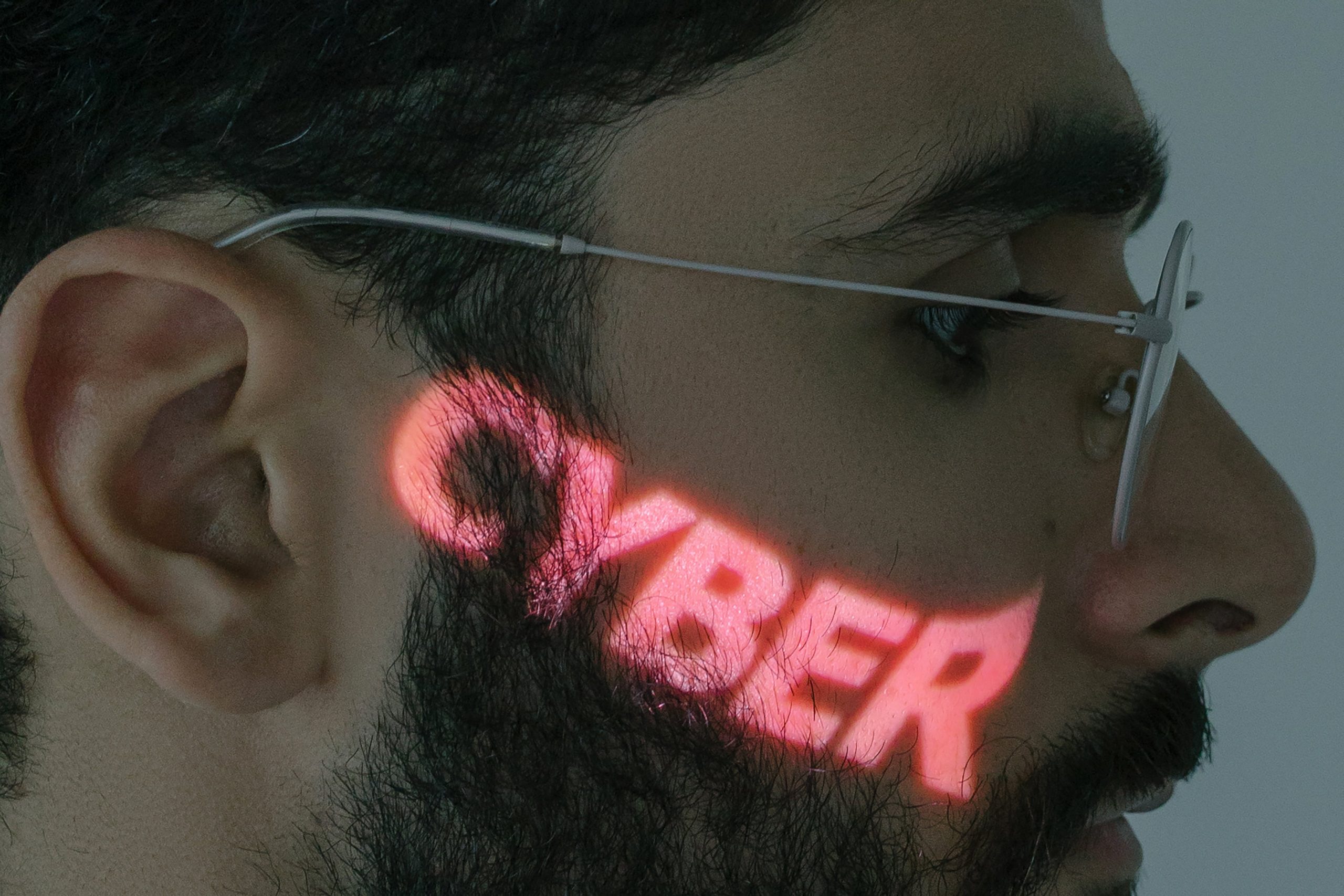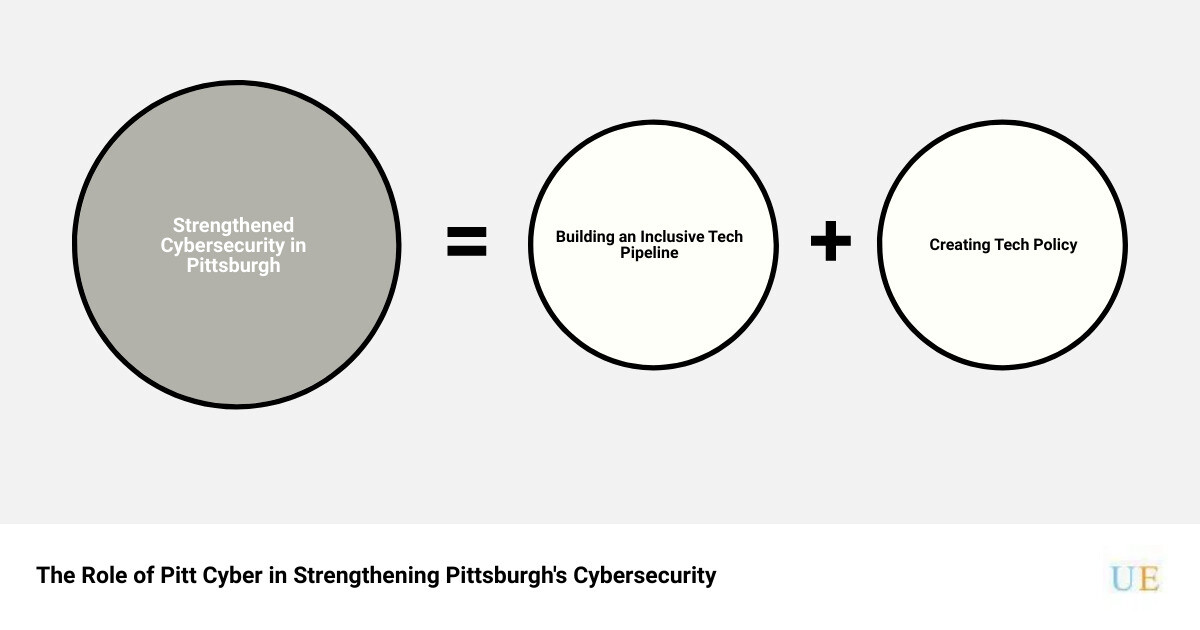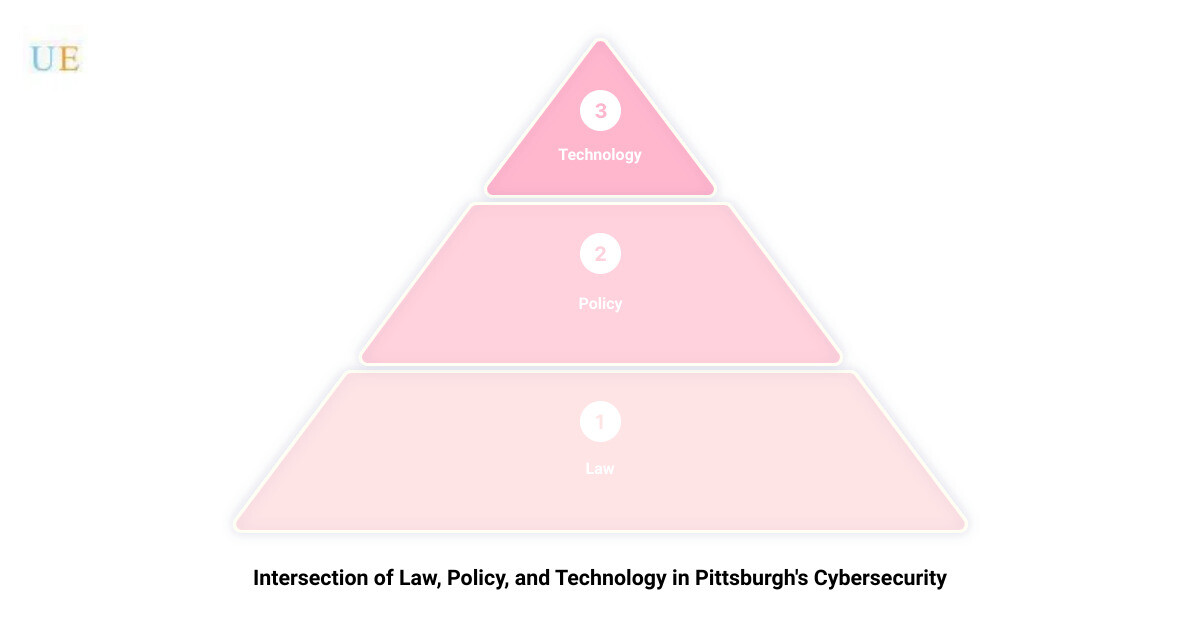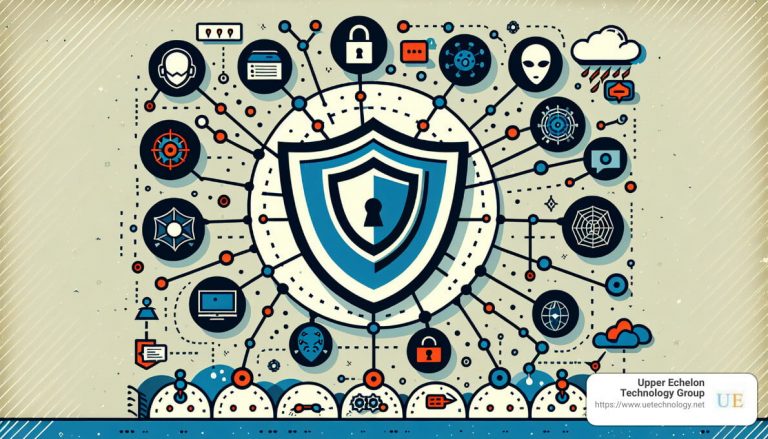Introduction: The Cybersecurity Landscape in Pittsburgh
In the heart of the Steel City lies an ironclad fortress of a different kind, one that protects not just physical assets but digital ones as well. Welcome to Pittsburgh, a city renowned for its rich history and industrial prowess, now becoming a beacon of cybersecurity strength. In this digital age, cybersecurity in Pittsburgh is not just a buzzword, it’s a living, breathing ecosystem that safeguards the city’s businesses and institutions from cyber threats.
The cybersecurity landscape in Pittsburgh is a complex network of academic institutions, tech companies, and government agencies working together to fortify the city’s digital defenses. Among the key players are the University of Pittsburgh’s Institute for Cyber Law, Policy, and Security (Pitt Cyber), and Upper Echelon Technology Group LLC, a managed services provider specializing in cybersecurity.
Pitt Cyber is at the forefront of cybersecurity education and policy-making in the city, working to build an inclusive tech pipeline, creating tech policy, and supporting cyber research. On the other hand, the Upper Echelon Technology Group LLC provides businesses with personalized IT Managed Services aimed at solving technology issues and leveraging technology to drive business growth.
As a business owner in Wilmington, DE, you may wonder, “Why does Pittsburgh’s cybersecurity landscape matter to me?” The answer is simple. In an increasingly interconnected world, the cybersecurity practices and advancements made in one city can influence and benefit others, including your own. Understanding the digital fortresses of Pittsburgh can help you better fortify your own business against cyber threats.
In the following sections, we will delve deeper into the hidden secrets of cybersecurity in Pittsburgh, uncovering the city’s digital fortresses, the role of key players like Pitt Cyber and Upper Echelon Technology Group LLC, and the economic impact of cybersecurity in the city. Let’s dive in.
The Role of Pitt Cyber in Strengthening Pittsburgh’s Cybersecurity
In the bustling, digital landscape of Pittsburgh, a shining beacon stands tall: Pitt Cyber. Committed to bridging the gaps between law, policy, and technology, Pitt Cyber uses its interdisciplinary prowess to tackle the city’s cyber challenges.
Building an Inclusive Tech Pipeline
The cornerstone of any successful cybersecurity initiative is a robust, inclusive pipeline of talent. Recognizing this, Pitt Cyber dedicates resources to youth cyber education and workforce development. They are actively involved in creating a diverse pool of tech-savvy individuals ready to join the digital workforce, ensuring Pittsburgh’s cyber defenses remain strong as the city continues to grow and evolve.
Creating Tech Policy
Beyond talent development, Pitt Cyber is a forerunner in creating tech policy that fights for justice. Their policy initiatives focus on the ever-changing gaps among law, policy, and technology. By understanding these gaps, they can create policies that preemptively address potential issues, fostering a safer digital environment for all stakeholders in Pittsburgh.
Supporting Cyber Research
Research is the lifeblood of cybersecurity, and Pitt Cyber is no stranger to it. They provide initial funding for novel and innovative projects through their Pitt Cyber Accelerator Grants. These grants advance Pitt Cyber’s mission of scrutinizing the critical questions of networks, data, and algorithms in our ever-evolving digital world.
The Pitt Disinformation Lab: Countering Online Malicious Influences
In the age of social media, the spread of disinformation has become a matter of grave concern. Enter the Pitt Disinformation Lab. This lab aims to develop a community-focused system of detection, understanding, and response to malicious influences online. It strives to create a new hybrid, multiscale understanding of disinformation ecosystems that can effectively counter disruptive trends.
The Pittsburgh Task Force on Public Algorithms: Ensuring Algorithmic Accountability and Equity
The advent of algorithms has revolutionized our digital world. However, they can often reflect biases and accelerate existing discrimination patterns. To combat this, the Pittsburgh Task Force on Public Algorithms seeks to establish best practices and guidelines for municipalities. Their efforts ensure algorithmic accountability and equity for all, thus fortifying Pittsburgh’s digital fortresses.
In the upcoming sections, we will further explore the economic impact of cybersecurity in Pittsburgh, the role of education in cybersecurity, and the intersection of law, policy, and technology in the city’s cyber landscape.
The Economic Impact of Cybersecurity in Pittsburgh
Pittsburgh, a city renowned for its steel, is now forging a new reputation as a hub for cybersecurity. The burgeoning cybersecurity industry in Pittsburgh is not only a testament to the city’s innovation but also significantly contributes to its economy. In this digital age, cybersecurity is not just about safeguarding data; it’s an economic driver, creating jobs, and fueling growth.
The Salary Range for Cybersecurity Specialists in Pittsburgh
One of the ways in which cybersecurity impacts the economy of Pittsburgh is through the salaries of cybersecurity specialists. The city is a lucrative market for professionals in this field. The 25th percentile of cybersecurity salaries in Pittsburgh starts at $103,600, with the 90th percentile reaching as high as $166,065. These earnings are significantly higher than many other professions, reflecting the high-demand and specialized skills required in the cybersecurity sector.
The Demand for Cybersecurity Jobs in Pittsburgh
The demand for cybersecurity professionals in Pittsburgh is another testament to the economic impact of the industry. As businesses increasingly depend on technology, the need for specialists to secure digital assets and data is growing. The rising threat of cybercrime has turned cybersecurity from a luxury to a necessity for businesses. As a result, the demand for cybersecurity specialists in Pittsburgh is at an all-time high, making it one of the city’s fastest-growing job sectors.
This increasing demand for cybersecurity professionals is not just creating jobs; it’s also influencing the city’s educational landscape. Universities and colleges in Pittsburgh are introducing more cybersecurity courses and programs to meet this growing need. This ensures a steady supply of well-trained professionals ready to tackle the city’s cybersecurity challenges.
In the next sections, we’ll delve into the importance of cybersecurity education in Pittsburgh and the unique role of managed services providers like Upper Echelon Technology Group LLC in strengthening Pittsburgh’s digital fortresses.
The Importance of Cybersecurity Education in Pittsburgh
As we navigate the digital frontier of the 21st century, the role of cybersecurity education has never been more critical, especially in tech-driven cities like Pittsburgh. The city is not just reacting to these challenges but is proactively shaping the future of cybersecurity through innovative educational initiatives.
The University of Pittsburgh’s Integrated Cybersecurity Curriculum
At the forefront of these efforts is the University of Pittsburgh’s Institute for Cyber Law, Policy, and Security, also known as Pitt Cyber. Pitt Cyber is committed to building an inclusive tech pipeline through youth cyber education and workforce development. This mission is realized through its integrated cybersecurity curriculum that spans multiple areas of study and research.
Tapping into the breadth of one of the world’s leading public research universities, Pitt Cyber addresses the critical questions of networks, data, and algorithms. More importantly, it focuses on the ever-changing gaps among law, policy, and technology. This interdisciplinary approach ensures that students are well-equipped to handle the complex cybersecurity challenges of today and tomorrow.
Pitt Cyber’s Annual Virtual Air Force Association CyberCamp
But it’s not just university students that Pitt Cyber is investing in. Recognizing the value of early exposure to cybersecurity concepts, Pitt Cyber, in partnership with Robert Morris and Pitt Information Technology, hosts an annual week-long virtual Air Force Association CyberCamp.
This camp offers high school students an engaging introduction to cyber ethics and system security. By fostering a learning environment that encourages curiosity and innovation, the camp aims to inspire the next generation of cybersecurity professionals.
Through initiatives like this, Pittsburgh is carving out a name for itself as a city truly invested in the digital future. The city’s commitment to cybersecurity education is not just about securing its own digital fortresses but also about creating a sustainable pipeline of talent that can contribute to cybersecurity efforts beyond its borders.
In the next section, we’ll explore how this intersection of law, policy, and technology is shaping Pittsburgh’s cybersecurity landscape and how managed service providers like Upper Echelon Technology Group LLC are playing a vital role in this ecosystem.
The Intersection of Law, Policy, and Technology in Pittsburgh’s Cybersecurity
In the intricate world of cybersecurity, the junction of law, policy, and technology forms a crucial point of convergence. This is especially true in Pittsburgh, where organizations like Pitt Cyber are leveraging the breadth of one of the world’s leading public research universities to address the ever-changing gaps among these three pillars.
Pitt Cyber Accelerator Grants: Funding Innovative Projects
One of Pitt Cyber’s standout initiatives is the Pitt Cyber Accelerator Grants (PCAG). These grants offer initial funding for novel and innovative projects that align with Pitt Cyber’s mission. They provide a springboard for projects that explore the critical questions of networks, data, and algorithms, all while keeping a keen eye on the fluid gaps between law, policy, and technology. This initiative represents a significant investment in Pittsburgh’s cybersecurity landscape, fostering a culture of innovation and research that can respond to emerging cybersecurity threats and challenges.
Election Security: Protecting the Integrity of Elections
Election security is another critical area at the intersection of law, policy, and technology. Notably, Pitt Cyber is actively engaged in exploring the technical, policy, and political challenges of securing elections. This work involves providing practical recommendations for protecting the integrity of our democracy. As we’ve seen in recent years, our elections are under threat from nation-state adversaries, and we are not prepared to defend the integrity of our votes at local, state, or federal levels.
In Pennsylvania, Pitt Cyber is working to strengthen resilience against false narratives about our elections. They are providing resources to offer accurate information about our elections and educating the public on why disinformation works—and what we can all do to mitigate it.
In this ever-evolving cybersecurity landscape, managed service providers like Upper Echelon Technology Group LLC play an essential role. They bring a personalized approach to IT Managed Services, solving technology issues, increasing team efficiency, and identifying areas where technology can improve your bottom line. In the next section, we’ll delve deeper into the role of these providers in Pittsburgh’s cybersecurity.
The Role of Managed Services Providers in Pittsburgh’s Cybersecurity
When it comes to safeguarding a city’s digital realm, Managed Services Providers (MSPs) form the backbone of a robust cybersecurity framework. In Pittsburgh, a city that’s emerged as a hotspot for cybersecurity, the role of MSPs like Upper Echelon Technology Group LLC is crucial.
Upper Echelon Technology Group LLC: Personalized IT Managed Services
Upper Echelon Technology Group LLC, a cybersecurity-focused MSP, offers a broad spectrum of managed IT services. With offices in PA, DE, and FL, this MSP has carved a niche in solving complex technology issues with a personalized approach. Their services range from backup and disaster recovery solutions, cloud hosting services, cybersecurity services, endpoint management, IT support services, to network security services.
Upper Echelon’s services are designed to ensure that your network is protected and optimized 24x7x365, allowing your technology to serve your business instead of the other way around. This unique approach keeps Pittsburgh’s digital landscape secured against potential cyber threats.
The Unique Selling Proposition of Upper Echelon Technology Group LLC
Upper Echelon Technology Group stands out in the crowded MSP market with its distinctive approach to managed IT services. Unlike companies that solely focus on fixing tech issues, Upper Echelon goes a step further.
They focus on three core areas:
- Solving technology issues – They ensure that the technology issues faced by your business are addressed promptly so you can focus on your core operations.
- Leveraging technology to improve efficiency – They make your team more efficient by leveraging technology, thereby increasing productivity.
- Improving profitability through technology – They identify areas where technology can be leveraged to improve your bottom line, thereby making your company more profitable.
This personalized approach to IT Managed Services sets Upper Echelon apart from its competitors. They don’t just fix tech issues; they help businesses leverage technology to their advantage, making them a critical player in strengthening Pittsburgh’s cybersecurity.
In a world where cyber threats are increasingly sophisticated and damaging, the role of MSPs like Upper Echelon Technology Group is more important than ever. They’re not just service providers; they’re partners in navigating the complex landscape of cybersecurity, ensuring that Pittsburgh’s digital fortresses remain impregnable.
Conclusion: The Future of Cybersecurity in Pittsburgh
As we stand on the precipice of a new age in digital security, the future of cybersecurity in Pittsburgh looks promising and well-fortified. The city’s robust cybersecurity ecosystem, powered by institutions like Pitt Cyber and forward-thinking managed services providers (MSPs) like the Upper Echelon Technology Group, is poised to counter the evolving cyber threats of the 21st century.
One of the key factors that will shape the future of cybersecurity in Pittsburgh is the city’s continued commitment to cybersecurity education and research. Programs like Pitt Cyber’s annual CyberCamp for high school students and the University of Pittsburgh’s integrated cybersecurity curriculum are nurturing the next generation of cyber warriors. Not only will these initiatives help meet the growing demand for cybersecurity professionals, but they will also ensure that Pittsburgh remains at the forefront of cybersecurity innovation.
Moreover, the city’s focus on the intersection of law, policy, and technology is another critical piece of the puzzle. Initiatives like the Pitt Cyber Accelerator Grants and the Pittsburgh Task Force on Public Algorithms demonstrate the city’s commitment to ensuring technological fairness, accountability, and integrity. As our world becomes increasingly connected and reliant on digital technologies, these initiatives will play a crucial role in shaping a secure and equitable digital future.
The role of MSPs like the Upper Echelon Technology Group cannot be overstated. As a cybersecurity-focused managed service provider, Upper Echelon is not just a service provider but a partner in safeguarding businesses from cyber threats. With their personalized approach to IT managed services, they are crucial in helping businesses solve their technology issues, improve efficiency, and leverage technology to fuel growth.
In conclusion, the future of cybersecurity in Pittsburgh is shaping up to be one of resilience, innovation, and growth. With its robust cybersecurity infrastructure, commitment to education and research, and the proactive role of MSPs like Upper Echelon Technology Group, Pittsburgh is well-positioned to navigate the evolving landscape of cyber threats and continue its legacy as a city of digital fortresses.






